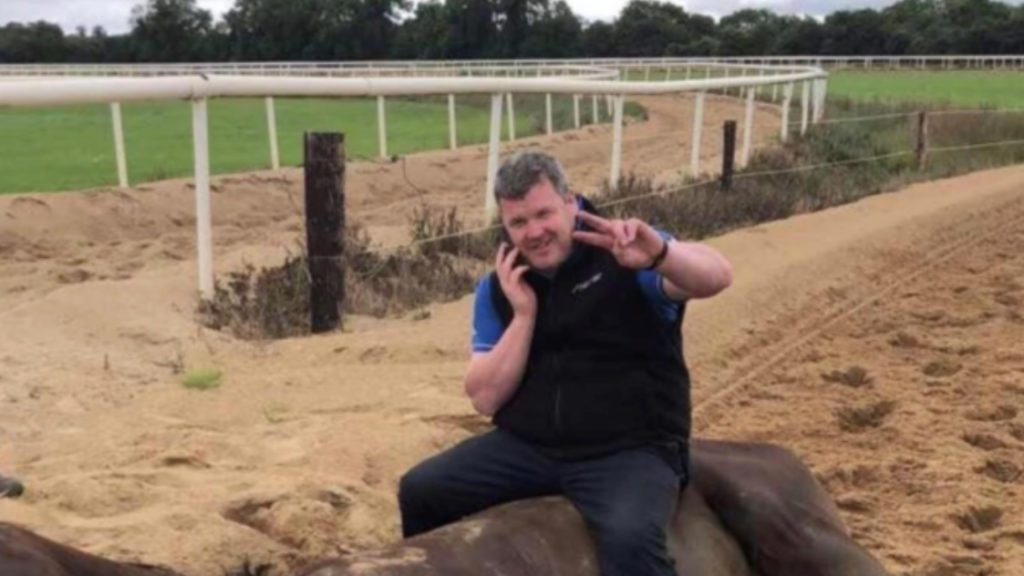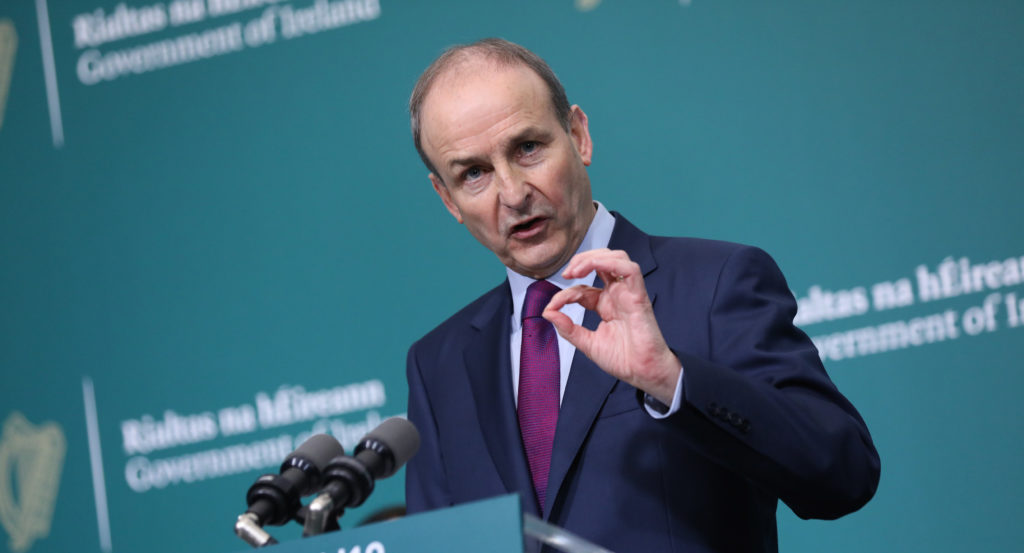MICHAEL MARTIN has weighed into the controversy surrounding Irish racehorse trainer Gordon Elliott after he was pictured sitting on a dead horse.
Elliott was handed a six-month suspension from the sport by the Irish Horseracing Regulatory Board (IHRB) along with a €15,000 fine.
The Gigginstown trainer’s license has been rescinded for 12 months, with the final six months of the ban suspended pending good behaviour.
Elliott’s ban comes after a picture surfaced on social media of him appearing to pose for a picture while straddling a dead horse. The image sparked outrage with several key sponsors severing their ties with the Irish racehorse trainer.
 (Image: Twitter)
(Image: Twitter)Now the Taoiseach has weighed into the debate surrounding Elliott’s actions and the impact it could have on Irish racing as a whole.
“I think his behaviour was absolutely unacceptable, and I think it offended people’s sense of the necessity, and the importance, of the respect for animal welfare,” Martin said.
“I think he regrets it very deeply.
“It is a matter for the authorities within the industry to deal with this through their disciplinary procedures.
“But I think it has damaged the industry, and that said, I think it is a very, very important industry.
“And I think many, many people who work with horses were very offended by the incident as well.”
 Micheál Martin
Micheál MartinMartin also expressed his concerns for the future of Irish horseracing, given the number of key sponsors to have already walked away from previous working relationships with Elliott.
He told the Irish Mirror: “It is an industry that has provided very gainful employment across rural Ireland.
“We speak so often in Ireland about the necessity for regional economic development and about creating employment in rural Ireland.
“The horse racing industry has been a leading industry in creating significant high-quality employment in rural parts of the country — and that is important.
“So, it’s absolutely essential then that the highest standards are adhered to at all times in this industry, and particularly in the context of animal welfare, it’s very important.”

